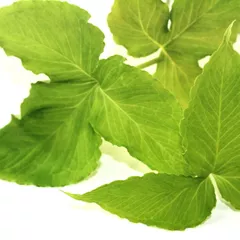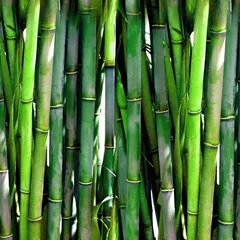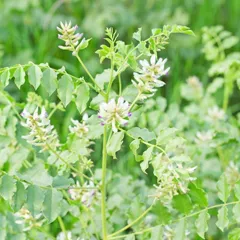Hiccups according to Chinese Medicine
The information provided here is not a replacement for a doctor. You shouldn't use it for the purpose of self-diagnosing or self-medicating but rather so you can have a more informed discussion with a professional TCM practitioner.
In Chinese Medicine, hiccups is sometimes associated with Stomach Qi Deficiency with Phelgm, a so-called "patterns of disharmony". Chinese Medicine sees the body as a system, not a sum of isolated parts. A "pattern" is when the system's harmony is disrupted. It is not equivalent to the Western concept of "disease" because both concepts arise from totally different ways of seeing the human body.
To understand whether someone's hiccups might be caused by the pattern Stomach Qi Deficiency with Phelgm, one needs to look for signs and symptoms associated with the pattern beyond what one might typically experience from hiccups alone. Indeed if hiccups is caused by Stomach Qi Deficiency with Phelgm, patients also experience symptoms such as unremitting belching, hiccuping, regurgitation and nausea or vomiting. Similarly, patients with Stomach Qi Deficiency with Phelgm typically exhibit empty (Xu) or wiry (Xian) pulses as well as a tongue with thick white coating.
We've listed below a more detailed description of Stomach Qi Deficiency with Phelgm so that you can have a better understanding of where hiccups might find its root according to Chinese Medicine.
Once identified, patterns are often treated using herbal formulas. Drinking herbal infusions is the most common remedy in Chinese Medicine, together with acupuncture. Here we detail below two formulas that can help treat Stomach Qi Deficiency with Phelgm.
Stomach Qi Deficiency with Phelgm, a "pattern of disharmony" associated with hiccups

The Stomach is a so-called "Fu" Organ. Learn more about the Stomach in Chinese Medicine
Stomach Qi Deficiency with Phelgm
Pulse type(s): Empty (Xu), Wiry (Xian)
Tongue coating: Thick white coating
Recommended herbal formula: Xuan Fu Dai Zhe Tang
Symptoms: Hiccuping Regurgitation Nausea or vomiting Unremitting belching Hard epigastric focal distention
Hiccups might be due to Stomach Qi Deficiency with Phelgm if the condition is paired with typical pattern symptoms such as unremitting belching, hiccuping, regurgitation and nausea or vomiting. Similarly, patients with Stomach Qi Deficiency with Phelgm typically exhibit empty (Xu) or wiry (Xian) pulses as well as a tongue with thick white coating.
The two herbal formulas that might help with hiccups



The top herbs in Xuan Fu Dai Zhe Tang are Inula Flowers (Xuan Fu Hua), Hematite (Dai Zhe Shi) and Crow-Dipper Rhizomes (Ban Xia)
Xuan Fu Dai Zhe Tang
Source date: 220 AD
Number of ingredients: 7 herbs
Key actions: Regulates the downward flow of Stomach Qi. Expectorant, treats hiccups.
Why might Xuan Fu Dai Zhe Tang help with hiccups?
Because it is a formula often recommended to help treat Stomach Qi Deficiency with Phelgm, a pattern sometimes associated with hiccups. If it looks like you might suffer from Stomach Qi Deficiency with Phelgm, this formula might help (although please seek confirmation with a professional practitioner beforehand).



The top herbs in Ju Pi Zhu Ru Tang are Tangerine Peel (Chen Pi), Bamboo Shavings (Zhu Ru) and Ginseng (Ren Shen)
Ju Pi Zhu Ru Tang
Source date: Essentials from the Golden Cabinet
Number of ingredients: 6 herbs
Key actions: Directs rebellious Qi downward. Stops hiccup. Augments Qi. Clears heat.
Why might Ju Pi Zhu Ru Tang help with hiccups?
Because it is a formula often recommended to help treat , a pattern sometimes associated with hiccups. If it looks like you might suffer from , this formula might help (although please seek confirmation with a professional practitioner beforehand).
Symptoms related to hiccups
Unremitting belching Hiccuping Regurgitation Nausea or vomiting Hard epigastric focal distention






